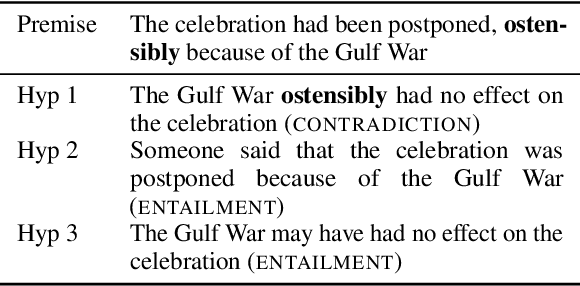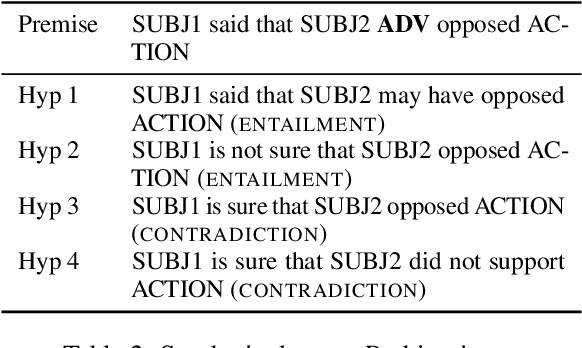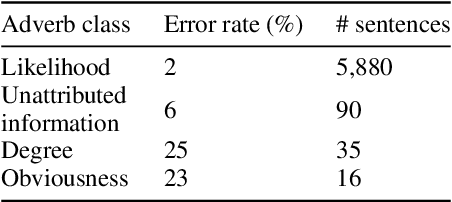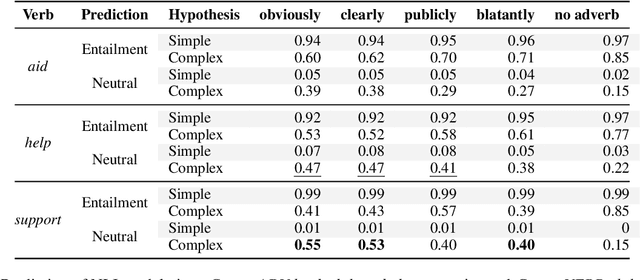Miriam R. L. Petruck
Adverbs, Surprisingly
May 31, 2023



Abstract:This paper begins with the premise that adverbs are neglected in computational linguistics. This view derives from two analyses: a literature review and a novel adverb dataset to probe a state-of-the-art language model, thereby uncovering systematic gaps in accounts for adverb meaning. We suggest that using Frame Semantics for characterizing word meaning, as in FrameNet, provides a promising approach to adverb analysis, given its ability to describe ambiguity, semantic roles, and null instantiation.
Sister Help: Data Augmentation for Frame-Semantic Role Labeling
Sep 16, 2021


Abstract:While FrameNet is widely regarded as a rich resource of semantics in natural language processing, a major criticism concerns its lack of coverage and the relative paucity of its labeled data compared to other commonly used lexical resources such as PropBank and VerbNet. This paper reports on a pilot study to address these gaps. We propose a data augmentation approach, which uses existing frame-specific annotation to automatically annotate other lexical units of the same frame which are unannotated. Our rule-based approach defines the notion of a sister lexical unit and generates frame-specific augmented data for training. We present experiments on frame-semantic role labeling which demonstrate the importance of this data augmentation: we obtain a large improvement to prior results on frame identification and argument identification for FrameNet, utilizing both full-text and lexicographic annotations under FrameNet. Our findings on data augmentation highlight the value of automatic resource creation for improved models in frame-semantic parsing.
Language (Re)modelling: Towards Embodied Language Understanding
May 01, 2020



Abstract:While natural language understanding (NLU) is advancing rapidly, today's technology differs from human-like language understanding in fundamental ways, notably in its inferior efficiency, interpretability, and generalization. This work proposes an approach to representation and learning based on the tenets of embodied cognitive linguistics (ECL). According to ECL, natural language is inherently executable (like programming languages), driven by mental simulation and metaphoric mappings over hierarchical compositions of structures and schemata learned through embodied interaction. This position paper argues that the use of grounding by metaphoric inference and simulation will greatly benefit NLU systems, and proposes a system architecture along with a roadmap towards realizing this vision.
 Add to Chrome
Add to Chrome Add to Firefox
Add to Firefox Add to Edge
Add to Edge